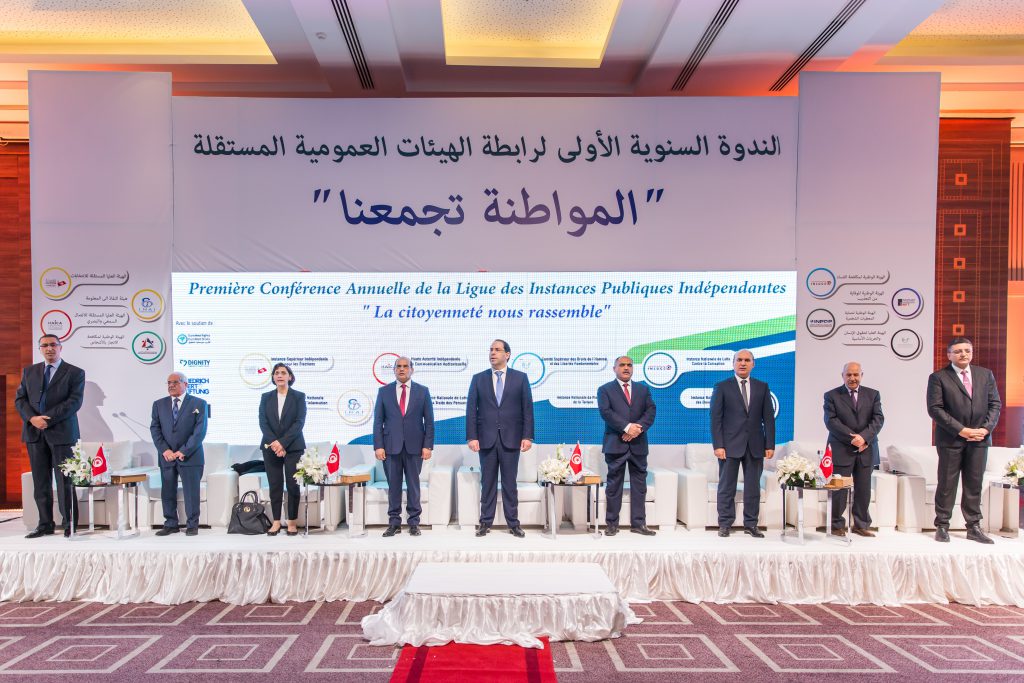The impact of the COVID-19 pandemic on the respect of human rights in Tunisia highlighted the frail political situation. Despite huge efforts, civil society’s influence was limited to support the state institutions in their democratic work. In this regard, the work done by the public and independent instances – either pre-existing or set-up following the 2011 Jasmine Revolution – to the most marginalised within society is noticeable.
The national instance against human trafficking organised field operations, with the help of the Tunisian state and international organisations, to provide first-necessity food and hygiene products to a hundred people. These operations were first carried out in six districts of Tunis before being extended to other parts of the country.
For its part, the national instance for the prevention of torture (INPT) closely monitored the issues regarding human rights violations within compulsory sanitary confinement centres and places of deprivation of liberty. The instance led monitoring visits in eight confinement centres as well as four prisons, one migrant reception centre and the Tunis psychiatric hospital. These visits resulted in a report published in April. The INPT also called for the launch of a new joint programme, to be led by several independent instances, to better raise staff’s awareness of the rights of people deprived of liberty. This project, should it be approved, would also enable the sharing of good practices aimed at respecting human rights in places of deprivation of liberty such as compulsory sanitary confinement centres, detention centres and prisons.
In socio-economic terms, the national instance against corruption led two control visits in distribution centres to fight against monopolisation which can lead to a rise in the price of first-necessity products. These operations enabled a pursuit of the fight against financial crime while contributing to improve certain practices. People denouncing corruption practices will now be better protected.
Despite the measures taken by the government to tackle wrongdoings during the pandemic, the role of civil society and of the independent instances remains essential to ensure the respect of human rights.

